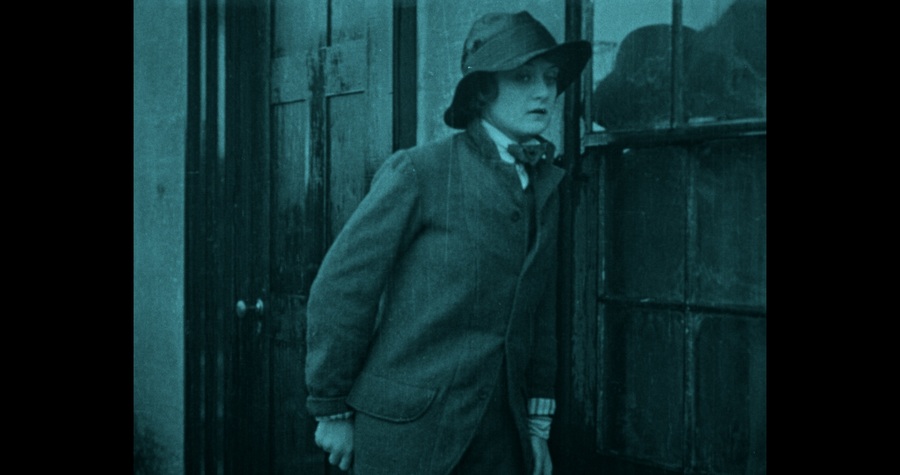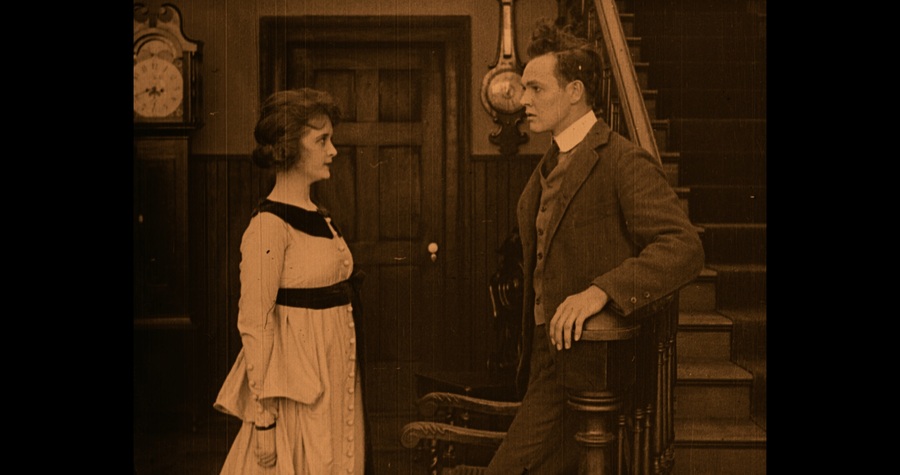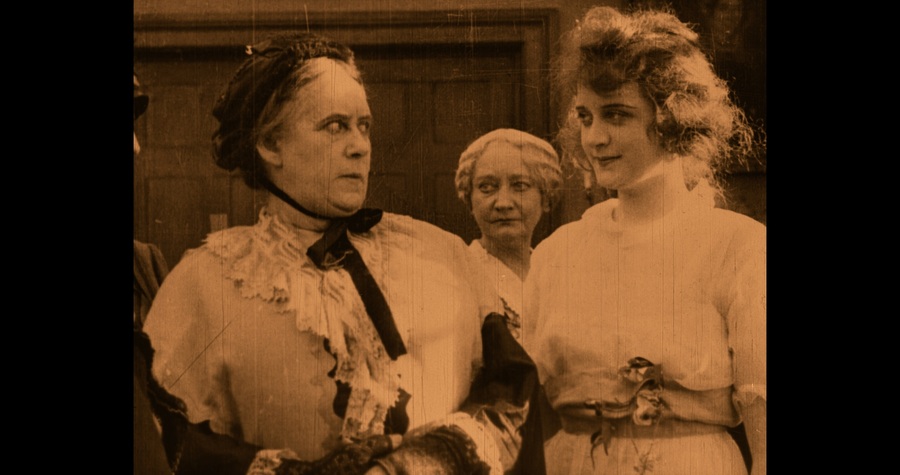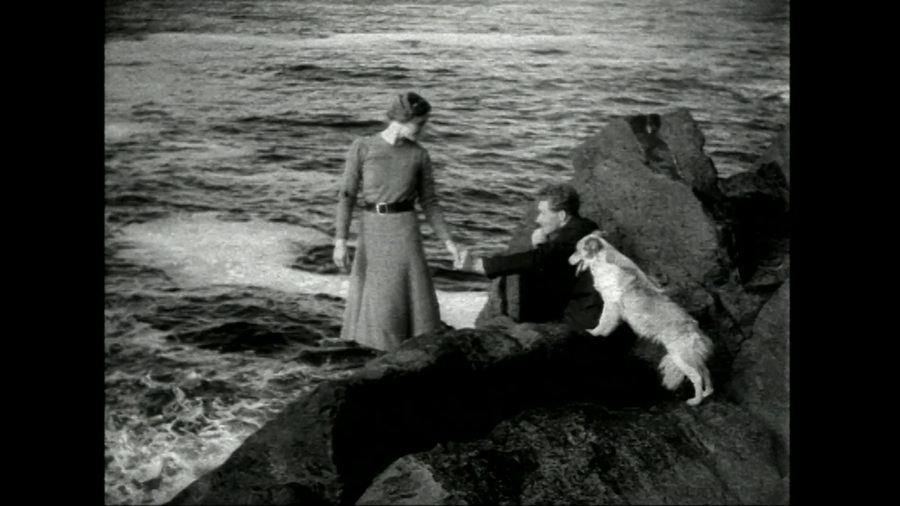HippFest presents two very different visions of Scotland
At this year's HippFest you'll find two very different depictions of Scotland on screen: effervescent Hollywood comedy Peggy and heartbreaking 'story documentary' The Rugged Island: A Shetland Lyric. We look at both ahead of the festival
Sometimes it feels like there's only one vision of Scotland in our collective imagination. You know the one: the tartan-clad fantasy of Braveheart and Brigadoon. While this image might dominate cinematic depictions, myriad other versions of Scotland exist on screen, from the whimsical (Local Hero) to the romantic (I Know Where I’m Going!) to the otherworldly (Under the Skin). That’s the case now and it was the case when cinema was only a few decades old, as evidenced at the upcoming Hippodrome Silent Film Festival, which brings two very different cinematic depictions of Scotland.
One is Peggy, from 1916. It’s a lively early example of Hollywood’s fascination with the ‘Old Country’. The title character is played with much charm by Billie Burke, most famous for her role as Glinda the Good Witch in The Wizard of Oz. Peggy is an orphaned young Scottish heiress who’s under the guardianship of a well-to-do New York family and she’s clearly been making a nuisance of herself. In the opening scene she’s declared a “little Scotch witch” after she causes chaos at a high-society ball. A letter arrives from her stern uncle, Andrew Cameron, demanding she returns to the homeland, to the sleepy town of Woodkirk. Peggy’s aghast at the idea at first, but soon relents. “Pack a couple of porridge bowls and a bagpipe,” she says to her trusty maid. “We’re off to Scotland!” Woodkirk doesn’t know what’s going to hit it.
What ensues is a fish-out-of-water comedy with a sprinkling of romance. Peggy causes as much carnage in Woodkirk as she did in New York. Her antics include nearly mowing down half the village while driving on the Sabbath, dressing like a boy to sneak into the local boozer and daring to stand up to her Presbyterian patriarch – oh, and she manages to seduce the town’s hot reverend too.
To get the lowdown on Peggy’s place in the Scottish canon we speak to Dr John Ritchie, a lecturer at Stirling University who specialises in Scottish identity on screen. Ritchie’s experience isn’t just academic. He’s also an actor, who’s cropped up in uber-Scottish shows like Outlander and Monarch of the Glen. You can currently see him on your TV screen hamming it up opposite Alan Cumming as Fergus the groundskeeper in the US version The Traitors.
Ritchie is well aware that with that hit reality show, he’s helping to put across a clichéd vision of Scotland. “Oh it's gloriously kitsch,” he says of The Traitors. “It’s interesting, the BBC version doesn't really bang on about it being set in Scotland. But the American version makes such a big deal of it taking place in this Highland castle. Alan said something about it being strange that the American version was more camp and theatrically Scottish than the British one, but it makes sense to me.”
Ritchie explains that the image of Scotland we see in The Traitors, similar to many films and TV shows, is designed for an American’s idea of Scotland, but this image was very much cultivated closer to home. “Scotland looks and behaves the way it does on screen because this is what Scotland told the world it looks and behaves like,” says Ritchie. “It’s thanks to the writings of people like Walter Scott and the Kailyard writers, where Scotland is presented in very romanticised ways.”
He can certainly see some of the Kailyard writers’ parochial vision of Scotland in Peggy: “the film was written especially for Billie Burke, who was a huge stage star at the time. But let’s face it, the whole story is basically just The Little Minister, the J. M. Barrie novel.” But in other respects, it's a more subtle depiction of Scotland. “Peggy doesn't scream Scottishness to me," says Ritchie. "In fact, in some ways it feels quite modern. It’s a lot of fun, and Billie Burke is a great comic actress – there’s lots of good comedy in there from her.” The character begins the film as an adorable kook, but reveals layers of maturity and bravery throughout, particularly in terms of the suffering of other women in town. “She’s an agent of chaos but she’s also a strong, independent woman who's not afraid to stand up and do the right thing and try to influence and change behaviour,” says Ritchie. By its end, Peggy has dragged this small village towards modernity.
For an entirely different depiction of a corner of Scotland, there’s The Rugged Island: A Shetland Lyric, a poignant film blending documentary and fiction to tell the story of a young couple torn between emigrating to Australia or remaining to work their croft in Shetland. It was made in 1933 by Glasgow-born Jenny Gilbertson, an extraordinary pioneering filmmaker, whose films were entirely one-woman productions. She wrote, directed, filmed, and edited The Rugged Island, and the result is an overwhelmingly beautiful film that doesn’t shy away from the harsh realities and conflicts of island life.
Both films screen on the opening day of HippFest. Stephen Horne will be providing a live, improvised accompaniment to Peggy, while a brand new score has been composed for The Rugged Island by Fair Isle multi-instrumentalist Inge Thomson, who will perform it live with Shetland fiddle-player extraordinaire Catriona Macdonald. Both are great films in their own right, but taken together they give a fascinating insight into our national identity.
HippFest, Bo'ness Hippodrome and other venues, 20-24 Mar
Peggy, Bo'ness Hippodrome, 20 Mar, 2.30pm
The Rugged Island: A Shetland Lyric, Bo'ness Hippodrome, 20 Mar, 7.30pm, and will stream online live



